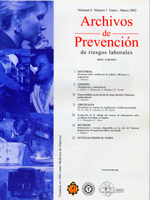Abstract:.
This paper provides an insight into the role played by contemporary expert culture in the management and control of occupational risks. Recent historiography in occupational medicine and scholarship in social studies of science are cited to illustrate how expertise has historically contributed to achieving social consensus on the use of risk technologies. First, it is shown how expertise contributes to shaping a very restrictive image of the health risks posed by industrial processes. Eventually, this restrictive image becomes decisive in determining public understanding of industrial risks. This public perception relies on confidence in technical control and on the underestimation of risks. Moreover, the encapsulation of occupational health issues within the technical, medical and legal domains hinders public debate on risk control and brings about its social «deproblematisation». Occupational health matters appear in the social arena only as episodic scandals or tragedies, which are managed without considering structural determinants. Finally, I explore the role of expertise in workers’ own opinion of health risks. Strategies fostered by expert culture, such as the individualisation and naturalisation of risks, tend to lay more stress on the sensitivity or resistance of workers than on social or technical determinants of risks.
